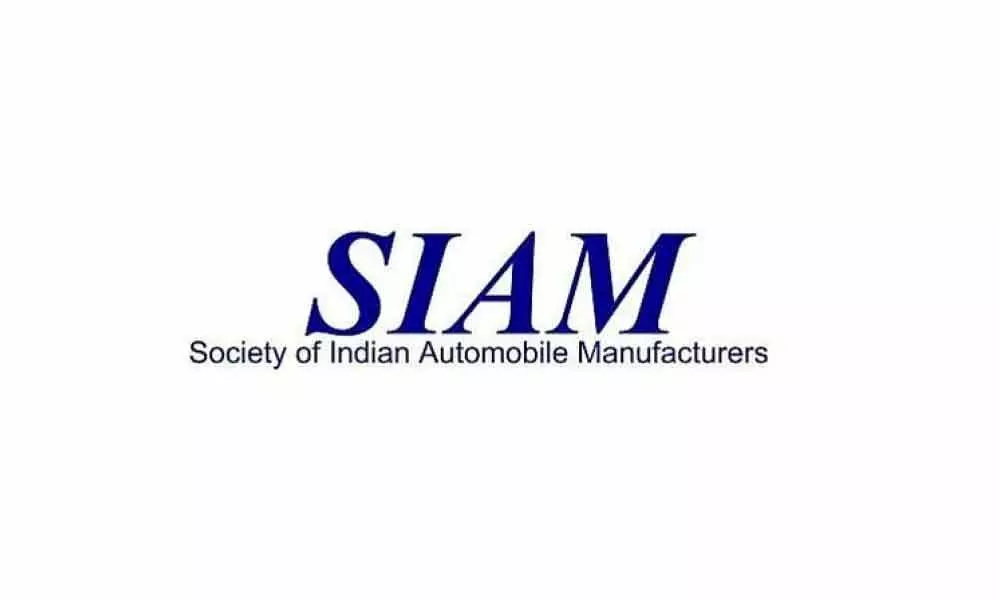2019 witnesses worst-ever decline in auto sales: SIAM

The automobile industry recorded its worst-ever sales decline in two decades in 2019, with an unprecedented slowdown hampering vehicle offtake across segments, according to industry body SIAM.
New Delhi: The automobile industry recorded its worst-ever sales decline in two decades in 2019, with an unprecedented slowdown hampering vehicle offtake across segments, according to industry body SIAM.
As per data released by the Society of Indian Automobile Manufacturers (SIAM) on Friday, all vehicle segments reported de-growth last year as low consumer sentiments, weak rural demand and economic slowdown took toll on demand.
Overall wholesale of vehicles during the year across categories, including passenger vehicles, two-wheelers and commercial vehicles, saw a decline of 13.77 per cent in 2019 at 2,30,73,438 units as against 2,67,58,787 units in 2018.
This is the worst fall in sales since the industry body started recording monthly and yearly sales data in 1997.
The previous lowest was recorded in 2007 when overall sales had declined by 1.44 per cent.
Similarly, total passenger vehicle sales during 2019 declined by 12.75 per cent to 29,62,052 units as compared with 33,94,790 units a year ago. This is the worst performance in the segment since 2013 when sales witnessed a dip of 7.49 per cent.
Two-wheeler sales also saw a dip of 14.19 per cent last year to 1,85,68,280 units as compared with 2,16,40,033 units in 2018.
Likewise, total commercial vehicles saw a dip of 14.99 per cent to 8,54,759 units as against 10,05,502 units in 2018.
"Challenges remain for the auto industry despite the government bringing in several growth enablers.
GDP growth rate remains an area of worry as commercial vehicle segment is clearly linked to it.
Besides, low demand from rural areas continues to be a matter of concern," SIAM President Rajan Wadhera told reporters here.
In passenger vehicles, utility vehicles are driving sales as other segments are not performing that well, he added.
When asked about the 2020 outlook, Wadhera said the situation is going to remain tough due to impending changeover to the BS-VI emission regime.
"We expect prices of commercial vehicles to go up by 8-10 per cent due to BS-VI norms and it is going to impact demand. But, if economic growth is there, this factor would not be such a sore point," Wadhera said.
Similarly, passenger vehicles would see cost increase in range of 3-7 per cent, which would also act as a dampener for sales growth, he said.
"So, growth in the segment is expected to remain flat. In two-wheelers, low demand from rural areas continues and challenges are expected to remain going ahead as well," Wadhera said.
He further said if the economy grows at around 6-7 per cent, the auto sector could see a return to growth rates witnessed four quarters ago.
When asked if job losses witnessed in various industrial sectors, such as auto and telecom, have had an impact on demand slump, Wadhera said, "Yes."
The auto industry body also said the positive sentiment that was witnessed during the festive season has not sustained with retail sales in December coming back to negative.
Commenting on the industry's Budget expectations, he reminded of the long-standing demand of reducing GST rate to 18 per cent and introduction of scrappage policy to spur demand.
In December, domestic passenger vehicle sales declined 1.24 per cent to 2,35,786 units in December from 2,38,753 units in the year-ago period.
Domestic car sales were down 8.4 per cent to 1,42,126 units as against 1,55,159 units in December 2018, according to SIAM.

